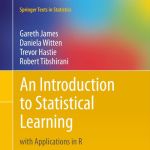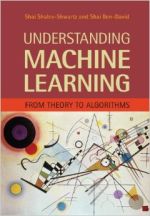
Machine Learning lecture by Andrew Ng - Stanford
Machine Learning lecture from 2008 by Andrew Ng Stanford
Gallery
Description
20 lectures of around 1 hour 15 each by Professor Andrew Ng. Contents:
- Linear regression, gradient descent and normal equations (Lecture 2)
- Locally weighted regression, probabilistic interpretation and logistic regression (Lecture 3)
- Newton's method, exponential families, and generalized linear models (Lecture 4)
- Generative learning algorithms and Gaussian discriminative analysis (Lecture 5)
- Naive Bayes, neural networks, and support vector machine (Lecture 6)
- Optimal margin classifiers, KKT conditions, and SUM duals (Lecture 7)
- Support vector machines, including soft margin optimization and kernels (Lecture 8)
- Learning theory, covering bias, variance, empirical risk minimization (Lecture 9)
- Learning theory by discussing VC dimension and model selection (Lecture 10)
- Bayesian statistics, regularization, digression-online learning (Lecture 11)
- Unsupervised learning in the context of clustering, Jensen's inequality (Lecture 12)
- Expectation-maximization (Lecture 13)
- Factor analysis and expectation-maximization steps (Lecture 14)
- Principal component analysis (PCA) and independent component analysis (Lecture 15)
- Reinforcement learning, focusing particularly on MDPs, value functions (Lecture 16)
- Reinforcement learning, focusing particularly on continuous state MDPs (Lecture 17)
- State action rewards, linear dynamical systems (Lecture 18)
- Debugging process, linear quadratic regulation, Kalmer filters (Lecture 19)
- POMDPs, policy search, and Pegasus in the context of reinforcement learning. (Lecture 20)
Reviews
Would you recomment this course to a friend?

What did you like about this course?
Andrew Ng is a legend in the machine learning space. It is great to have his course on Youtube.
What could be improved?
An updated version of this course would be great to have. While the fundamentals are of course still valid, there has been a lot of progress in the last 10 years.
Discussion
There are no comments yet. Please sign in to start the discussion.







